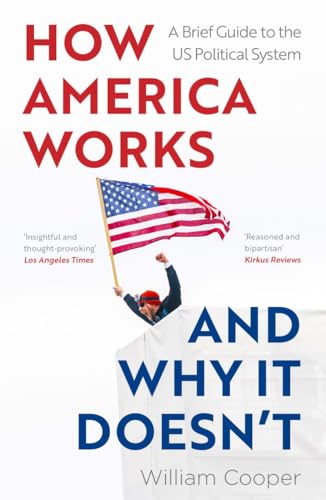What do you think?
Rate this book


224 pages, Paperback
Published July 23, 2024
so I gave this book a 4 out of 5, let me tell you why:
I thoroughly enjoyed about 80% of this book until the rapid decline towards the ending of the second half of the book. (It is split in to 2 segments: How America Works & ..Why It Doesnt)
Let me tell you some things that were great. William did a great job for the first half of the book starting with the history of America and some of our deep routed issues that have been trickled down in to present day, for example starting with systemic racism and slavery.
The foundation of how you build anything will always affect the overall quality of something, and being able to identify the issue is the first step towards progressively fixing it. This is really important in my opinion to immediately identify since a lot of people today scream the same rhetoric of how long ago that was and how it has no effect on issues currently, which people need to be way more informed on and William did wonderful correlating the past to present issues. He also lists our amendments which I learned in this book statistically that only a small percentage of people can tell you what they are. This is important because it emphasizes a lack in education, specifically civil, that the average person needs to have. When it comes to format I think he did an amazing job explaining the book from past to present, keeping the timeline and information parallel for a seamless read. Not only did he give an in depth lesson on our history he was very informative on statistics, core values of our nation, how we should be upholding them, and reminding readers of our essential traditions as a country, which I think a lot of us have lost in translation what a democracy stands for and acts like. He is extremely transparent about policy failures and the dysfunction in our federal structure which I also appreciate.
But this is where (and only where..) it became excruciating to finish..
After explaining in detail all the different biases in politics (e.g. confirmation bias, tribal bias, cognitive bias, etc) and continuously citing from Pew Research a nonpartisan think tank; for some reason when we get to the "And Why America Doesn't Work" (2nd half of the book) he goes full blown Donald Trump hating liberal on us. Instead of dedicating the rest of the book to demonizing Trump and mentioning everything he has ever said or did wrong it would have been way more conducive to continue highlighting the pros and cons of our history and the WHY'S. Hence the segment title..."And Why It Doesn't"..
Implying Trump is what is wrong with America right now is absolutely false. Trump in office is the product of the failures, lies and chaos that has been brewing in America for a long time under the radar. This was disappointing because the author does recognize a lot of the real main issues we have as Americans (Tribalism, Social Media, Civil Dysfunction, Lack of Education), but it felt like he couldn't hold back from letting everyone know his disdain for Trump as a person let alone as president. I'm not here to say whether he is good or bad, I just wish William stayed on the topic of informing WHY we are in the position we are in today. Cause AND effect, not just effect.
All in all, this book was great and I will recommend people to definitely add to their shelves. The first half "How America Works" was written close to perfect in my opinion and a must read. If you go through my highlights I left a bunch of remarks/notes if you would like to check them out even though they are more like 2am commentary responding to things I dont agree with hahaha. Good luck and Thanks William!
“a main reason why America isn’t working is because far too many Americans don’t know how it’s supposed to work”